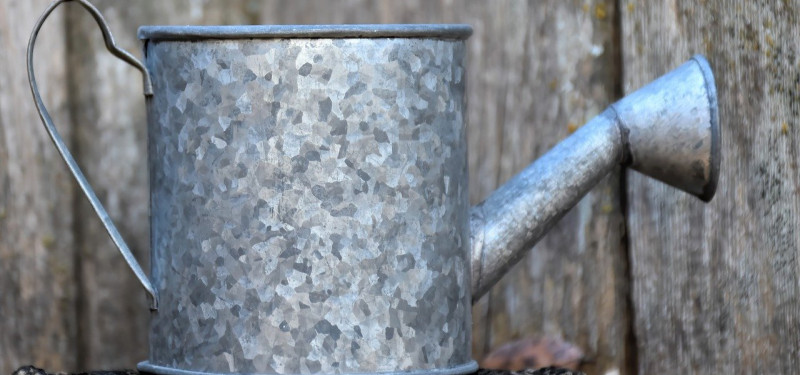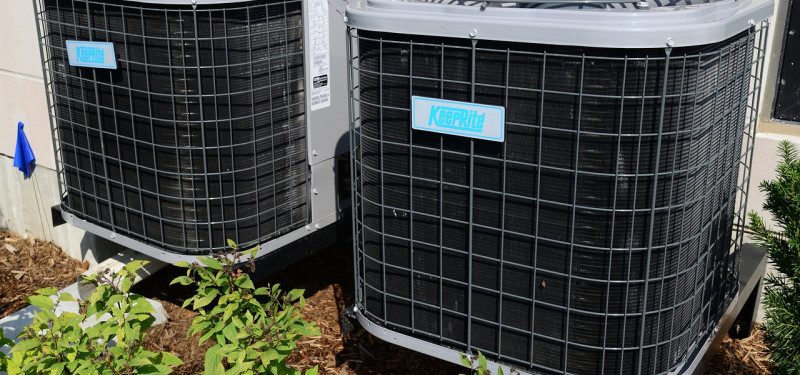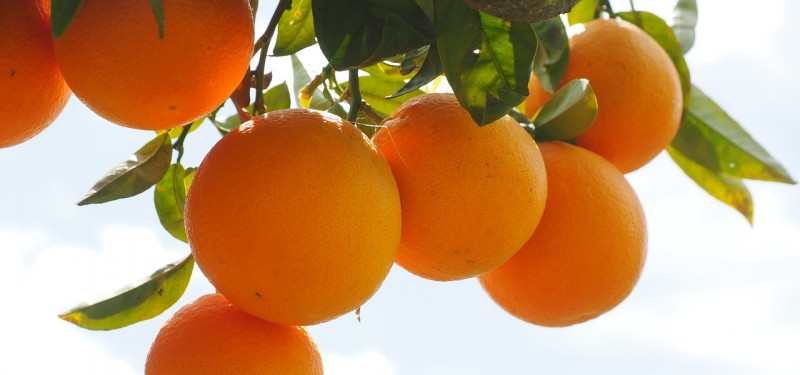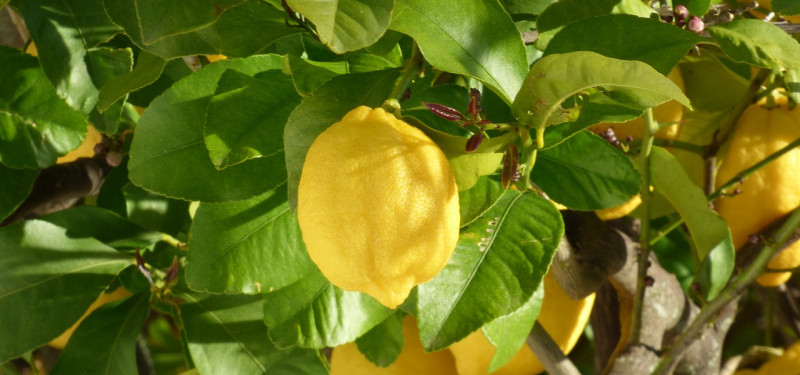Generally speaking, citrus fruit trees don't do well during the winter months. The good news is that if you have chosen to use gardening pots for lemon, orange, and fruit trees, you have the option of bringing them inside. While the warmth is good for them, there are still things that you need to do in order to ensure the trees remain healthy.
While some pests like deer, squirrels and others will no longer be able to get to the trees, that doesn't mean no threats are possible. You also want to know how to protect the citrus trees from pests during the winter months. Here are some tips that will help you on both counts.
How to Care For Citrus Fruits in the Winter - And Reduce Pest Issues

Adjust The Amount of Watering That You Do
One of the basics associated with how to look after citrus trees is knowing the amount of water each type of tree needs. Whatever that amount happens to be during warmer weather, you can bet it will change once the cold is on the way. The trick is to know how much of an adjustment you need to make to the water content.
Even though you bring the potted trees indoors, that doesn't mean the amount of watering done outside is still correct. The tree will likely need less frequent watering, or at least a reduction in the amount of water you use each time. A professional can provide guidelines based on the type and variety of citrus tree that you're bringing indoors.
Check The Indoor Humidity Level From Time to Time
Humidity in cold weather is not good for fruit trees, including your lemon or orange trees. At the same time, air that's too dry can create significant stress on trees that are used to the humidity levels found outside during the summer. Your goal is to find a place inside the home where it's possible to check the humidity level, and ensure it's within an acceptable range.
Depending on the home's construction, and the area where you choose to place the trees, maintaining a reasonable amount of humidity may not be an issue. Should you find that the air is too dry, you can always use a humidifier to restore some of the moisture in that part of the house.

Keep the Trees Away From Central Heating Vents
Central heating may feel wonderful to you, but it's not the best environment for citrus fruit trees UK to endure, even in the winter. Ideally, some sort of extension where you could keep the trees would be nice, but that's not always practical in urban or suburban areas. That mans you will need to use a trick or two that helps minimize the potential damage from a central heating system.
One trick is to not place the tree near any central heating vent. Whether the vent is in the floor of in the ceiling, the goal is to make sure the forced air does not blow directly on the tree. Even with that precaution, it's not a bad idea to place some sort of wrap around the pot. This will make it easier to keep the roots at a uniform temperature.
The same principle applies if you live in a home that does not have central heating. For example, if the home is heated using radiators or possibly gas jets in fireplaces, make sure there's a reasonable distance between the source of heat and each tree. Your goal is to ensure the temperature that the tree experiences while indoors is as consistent as possible.
Know What Nutrients Are Right For The Winter Months
Just as you will need to adjust the watering and pay attention to indoor humidity levels, it's important to determine if your citrus trees need a change in the nutrients found in the potted soil. That doesn't mean you have to change out the soil itself, especially if you've done that in the last year. What it does mean is that any type of fertilizing or other nutrition that is used for the trees in warmer weather may not be a good idea during colder weather.
The best time to fertilize fruit trees, including citrus trees, is during the growing season. Your trees are going into a slower mode during the winter cold, and you don't want to interfere with that. Instead, confine fertilizer use to the early spring to around the latter part of summer.
You can use the time of year when your trees bear the last fruit of the season. For example,
when do lemon trees produce fruit in the UK? Typically from the early summer to the early part of autumn, but indoor trees may bear some fruit from late autumn to early spring. One sign that you're doing things properly is that the lemon tree continues to produce some blossoms, although that production will slow down until around the time late winter yields to early spring.

Do Make Sure They Have Enough Light
Access to natural light is another issue that you want to address. You already know that owning an orange or a lemon tree Salisbury involves providing plenty of light during the warmer months. This won't change when colder weather arrives. For this reason, be mindful of where you place the potted fruit trees for the winter.
If you have a solarium or a sun room, this won't be a problem. When those are not options, choosing to position the trees so that light coming through the windows reaches them with ease will likely do. Remember that the more direct the sunlight happens to be, the greater the odds that the tree will remain healthy.
Pay Attention to Any Signs of Leaf Discoloration
The foliage on your citrus trees should retain their color and luster throughout the winter. One sign that something is not quite right in the environment is a change in the hue of the leaves. This could mean there's too much water, not enough humidity, or that whatever nutrients you're providing needs to be scaled back.
While slight discoloration doesn't mean the tree is on the way out, it does mean that you need to make some changes. Along with considering what you can adjust, it never hurts to look for any signs of pest infestation. This may include tiny marks on the leaves as well as discoloration. If you find any evidence of pests, take action immediately.

Or If the Foliage Begins to Drop
The same is true if you notice that the tree is starting to lose foliage. It may be that some of the leaves that lose their usual hue begin to fall off. That is a sign you need to change something. Keep in mind if could be something as simple as adjusting the watering a bit, while still making sure the soil has enough moisture.
If it's not the watering, then something else is leading to the loss of foliage. Go over your list of maintenance tips and determine if you should move the potted tree to another part of the home, provide more cover for the tree base, or perhaps increase the amount of humidity within the space. In many instances, the solution will prove to be something that you can take care of with ease.
Remember That Indoor Warmth Can Attract Pests
Can you grow oranges in the UK? Absolutely. It does mean knowing how to care for the orange tree during warm weather, and what to do for it once the weather turns cold. Along with providing the best environment possible when moving the trees indoors, it also pays to remember that not all pests are found outside.
To be sure, you won't have to be concerned about some of the larger pests that are found outside. However, don't assume that bringing the trees inside protects them from all sorts of pests. There are several that may pop up before you move the trees back outside.
What sort of wintertime pests may make themselves at home with your indoor fruit trees? Mealy bugs are one example. Aphids are still a potential issue. The same is true for red spider mites, and scale. Don't overlook the possibility of finding caterpillars hiding among the foliage.
Given how each of these pests can cause significant damage, it's in your best interests to take action at once. There are products that you can safely use indoors to get rid of the pests. Most are available at local nurseries, but you can also order many of them online.
Follow the directions carefully, and monitor the trees for signs of progress. Doing so will bring the threat under control, and help ensure the trees are doing fine when it's time to move them back outdoors.

In an era when more people are working from home, and are looking for sustainable ways to ensure there's enough to eat, citrus trees are a great option. Choosing to go with varieties that you can pot, then bring in for the winter, are something to look at closely when you buy fruit trees online. With the right approach to care, you can protect the citrus trees from the elements, keep them healthy, and look forward to more fresh fruit in the year to come.